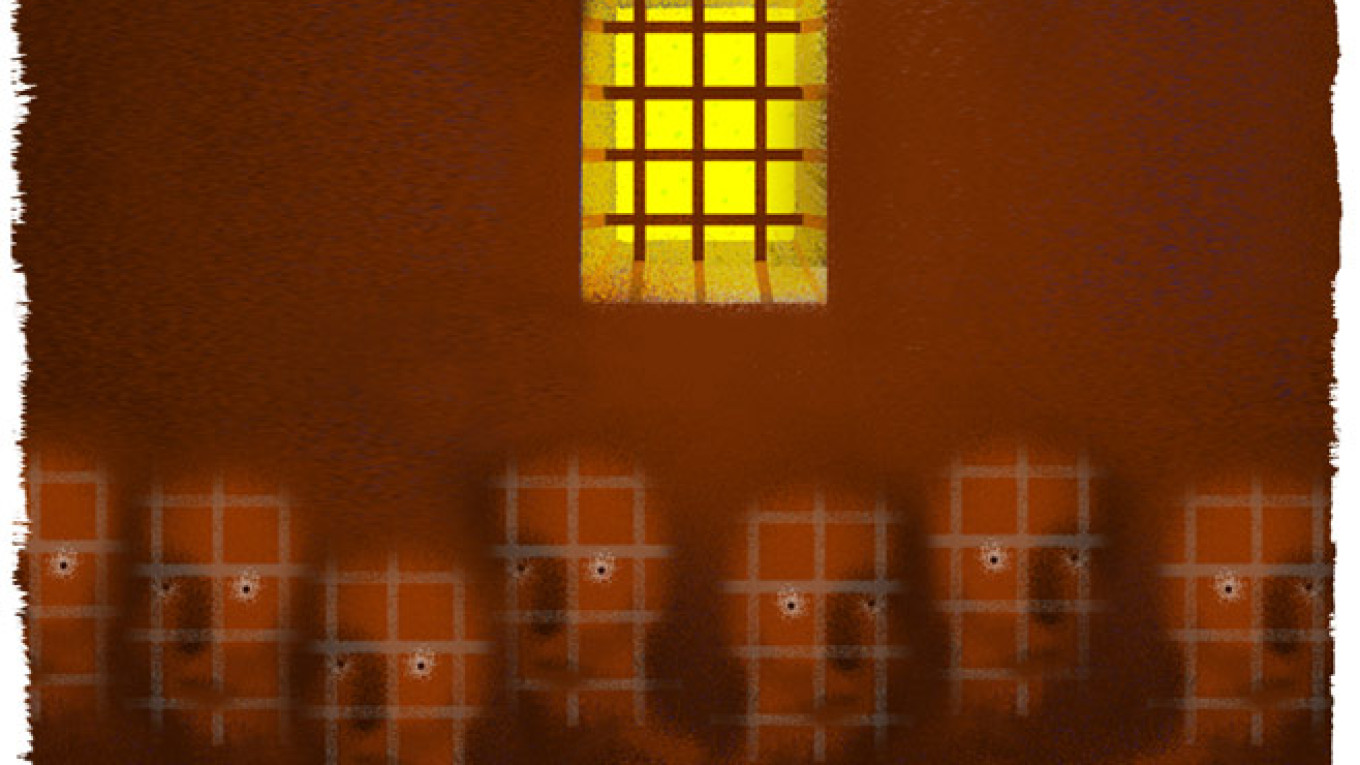In August the Chronicle of Current Events human rights website published its latest list of Russia's political prisoners: 217 opposition politicians, human rights activists, environmental activists, religious believers and bloggers.
For anyone who lived through the political repressions of the Soviet Union, the list evokes a stab of deja vu. With the exception of people who committed their "crimes" on the Internet — which didn't exist during the Soviet era — almost all of today's political prisoners could have been put behind bars in the Soviet Union too. Alexander Byvshev, a teacher from the Orlov region, would have gotten a jail sentence for his two poems in support of Ukrainian independence. And Liza Tsvetkova, who worked at an aircraft factory in Taganrog, would have been imprisoned for distributing leaflets condemning police brutality.
All that has changed is the legalese. During the Soviet era, Tsvetkova would have been charged with "slandering the Soviet state," but now she has been accused of the remarkable crime of "inciting hatred or enmity … against the social group of police officers."
There were 280 names on the last list of Soviet political prisoners in 1986. But the Soviet list included people imprisoned in all the Soviet republics, not just Russia. That means that the number of political prisoners per capita in Russia today is much higher than the number back in the Soviet Union.
Of course, neither list is complete. In the Soviet Union far more dissidents were in prison than human rights activists knew about. And today information about a prisoner sometimes becomes available only several years after his or her arrest. This is true especially of anyone accused of treason, as those cases are usually classified.
For example, just recently it became known that for more than two years a radio engineer named Gennady Kravtsov has been held in pretrial detention under the charge of "high treason." What did he do? In 2010 he sent his resume and a job query to a Swedish firm.
A long time ago, Kravtsov did work on classified projects, but his security status had been revoked and he'd been cleared for foreign travel. It's not clear why the FSB decided to charge Kravtsov. Most likely, it is not connected with his actions but rather a demonstration that Russia is reverting to the Soviet obsession with secrecy.
A comparison of the most recent list with previous versions shows some disturbing trends. In less than a year the number of political prisoners has doubled, and since March the repressions have intensified. Every month 12 people are charged with political crimes. And the sentences are growing harsher: In March the average sentence was five years, seven months, but now it's six years and two months.
Even more disturbing is this: For the first time since the Soviet period, people have been jailed for private conversations. Crimean Tatar Mustafa Yagyayev complained about the annexation of Crimea in a conversation with the staff of an accounting department. They denounced him to the FSB and Yagyayev was given a two-year suspended sentence.
Like in the Soviet Union, today it is hard to paint a portrait of the "typical" Russian political prisoner. They vary greatly by social status, level of education, profession and age. Gleb Fetisov, a corresponding member of the Academy of Sciences and a banker, became a target when he decided to get involved in politics and headed up the Green Alliance environmental party.
The "crimes" committed are as varied as the people. For example, Vladimir Zavarkin, a deputy of the city council in the town of Suoyarvi in Karelia, criticized the Karelian authorities at a rally and is now accused of inciting "separatism."
Famous St. Petersburg artist Pyotr Pavlensky organized a street performance last year called "Freedom." As part of the performance he burned several tires and imitated the actions of the Kiev protesters. Pavlensky is accused of vandalism and "desecration of a bridge," and is facing a four-year prison term.
Twenty-two-year-old system administrator Kirill Silivonchik in Nizhny Novgorod made one comment on social media and reposted a political cartoon. That was enough to get a two-year prison term.
The list of political prisoners includes managers of IT companies, writers, psychologists, journalists, sales clerks, farmers and even soldiers who refused to fight in eastern Ukraine. They are an almost perfect social snapshot of contemporary Russia.
Despite the massive propaganda campaign and the notorious 86 percent support for the Kremlin's foreign policy, resentment is growing inside society, and sizable numbers of people are ready to take action to regain the rights now denied them. This includes the right to representation in government and to express their opinion at demonstrations or in an independent press.
There is a desperate need for a dialog between the Kremlin and the opposition. It's hard to say if the Kremlin is ready for it. But the ball is in their court.
Victor Davidoff is a Moscow-based independent journalist and editor of the human rights website Chronicle of Current Events (ixtc.org).
A Message from The Moscow Times:
Dear readers,
We are facing unprecedented challenges. Russia's Prosecutor General's Office has designated The Moscow Times as an "undesirable" organization, criminalizing our work and putting our staff at risk of prosecution. This follows our earlier unjust labeling as a "foreign agent."
These actions are direct attempts to silence independent journalism in Russia. The authorities claim our work "discredits the decisions of the Russian leadership." We see things differently: we strive to provide accurate, unbiased reporting on Russia.
We, the journalists of The Moscow Times, refuse to be silenced. But to continue our work, we need your help.
Your support, no matter how small, makes a world of difference. If you can, please support us monthly starting from just $2. It's quick to set up, and every contribution makes a significant impact.
By supporting The Moscow Times, you're defending open, independent journalism in the face of repression. Thank you for standing with us.
Remind me later.


